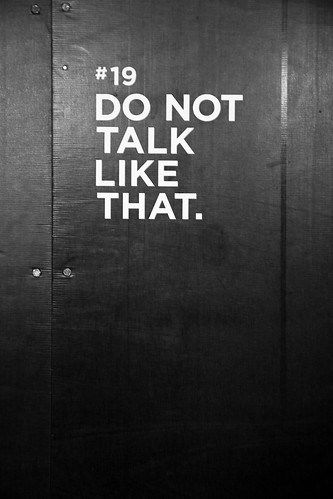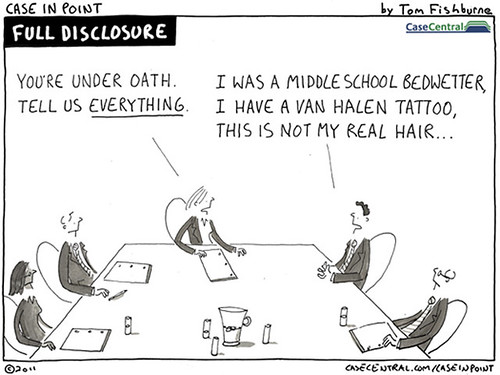Why can we predict other people’s behavior more accurately than our own?
en predicting other people's behavior we always consider the context. With our own behavior we like to believe that we won't be affected by context. Via BPS Research Digest: Psychologists have identified an important reason why our insight into our own psyches is so poor. Emily Balcetis and David Dunning found that when predicting our own behaviour, we fail to take the influence of the situation into account. By contrast, when predicting the behaviour of others, we correctly factor in the influence of the…
1 min read
Do you need a “to-do” list or a “not-to-do” list?
m Collins, author of Good to Great: Why Some Companies Make the Leap... and Others Don't, makes an interesting suggestion -- you may need to worry less about your to-do list and focus on a "stop doing" list: Rochelle's lesson came back to me a number of years later while puzzling over the research data on 11 companies that turned themselves from mediocrity to excellence, from good to great. In cataloguing the key steps that ignited the transformations, my research…
2 minutes
If talking to yourself improves performance, what should you be saying?
at you need to know: Talking to yourself does help performance. Self-talk is best used in trying to learn new skills than covering things you are already familiar with. In terms of physical activity, it helps more with fine, subtle tasks than big movements. Via Eurekalert: But the researchers teased out more - different self-talk cues work differently in different situations. For tasks requiring fine skills or for improving technique "instructional self-talk", such as a technical instruction ("elbow-up" which Hatzigeorgiadis…
2 minutes
How do you get others to lie and cheat less?
st people cheat just enough to get an edge but not so much that they feel like a bad person. Subtly making them aware their own morality can nudge them back to being good: Via APS: The program began with a lively talk about dishonest decisions by Dan Ariely of Duke University, the popular behavioral economist and author of Predictably Irrational, who is as comfortable dropping jokes as he is delivering research findings. Ariely and his colleagues found that, given…
1 min read
Is win-win negotiating the best way to increase your salary?
esn't look like it. This study shows that people who pushed for the highest amount -- purely out of self-interest -- came away with the highest number: Via Strategy+Business (HT: PsyBlog): Not surprisingly, the biggest salary increases went to those who negotiated in the most competitive manner, acting purely out of self-interest. This could mean trying to use a job offer from another firm as leverage or even misrepresenting some facts. This type of negotiation often left both sides feeling…
1 min read
Does “full disclosure” really address conflicts of interest?
tually, it may make things even worse. Via Boston.com: Disclosure doesn’t solve problems the way we think it does, and in fact it can actually backfire. Coming clean about conflicts of interest, they find, can promote less ethical behavior by advisers. And though most of us assume we’d cast a skeptical eye on advice from a doctor, stockbroker, or politician with a personal stake in our decision, disclosure about conflicts may actually lead us to make worse choices. “None of…
2 minutes
How You Can Quickly And Easily Increase Confidence And Reduce Anxiety
lk to yourself: Objectives The present study examined the effects of motivational self-talk on self-confidence, anxiety, and task performance in young athletes. Methods Participants were 72 tennis players. The experiment was conducted in five sessions: baseline assessment, three training sessions, and final assessment. After the baseline assessment participants were divided and assigned randomly into experimental and control groups. The two groups followed the same training program with the experimental group practicing the use of self-talk. In the last session, the…
1 min read
Do you underestimate the power of touching?
a the New York Times: Studies show touching has the power to encourage, reduce pain and communicate: Students who received a supportive touch on the back or arm from a teacher were nearly twice as likely to volunteer in class as those who did not, studies have found. A sympathetic touch from a doctor leaves people with the impression that the visit lasted twice as long, compared with estimates from people who were untouched. Research by Tiffany Field of the…
2 minutes







